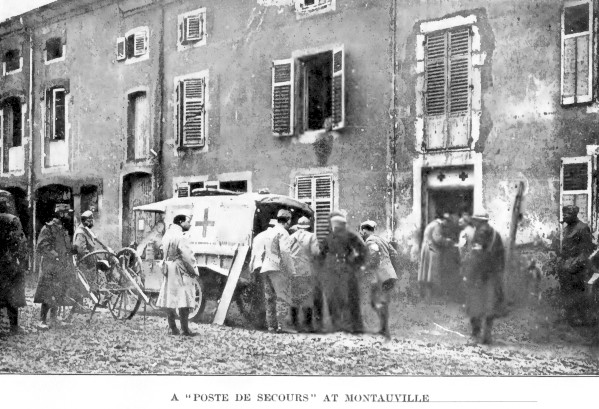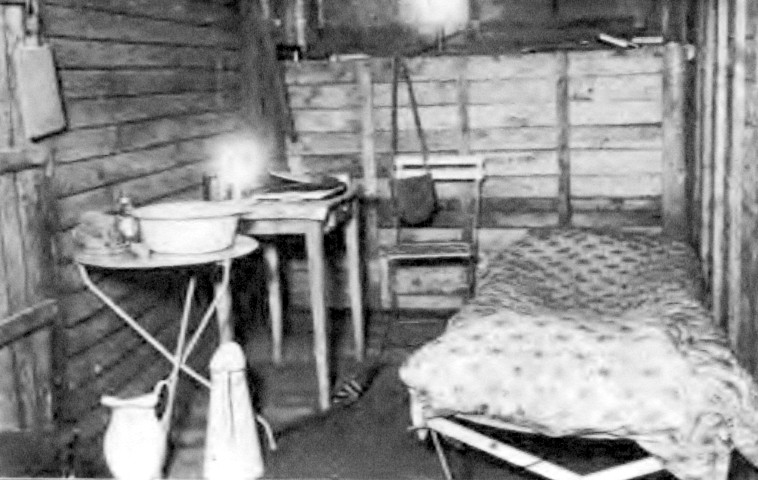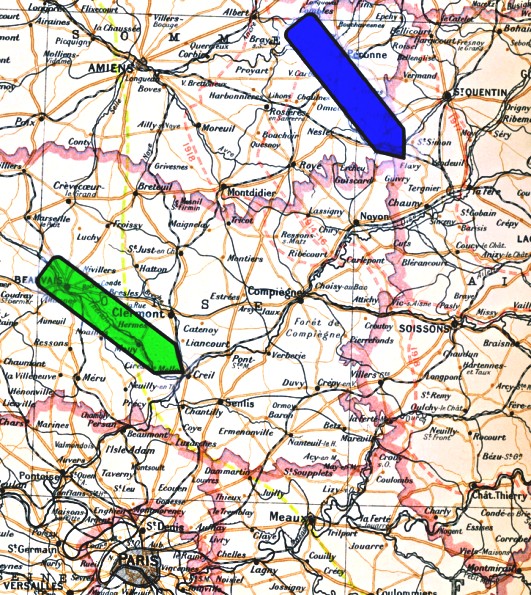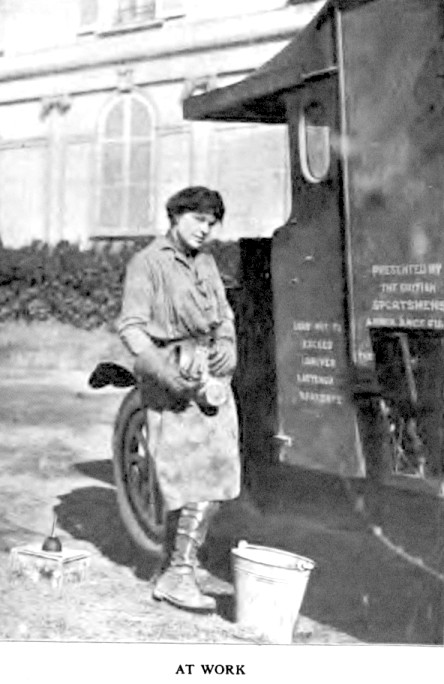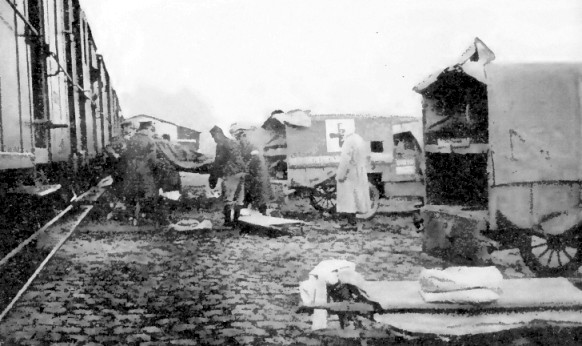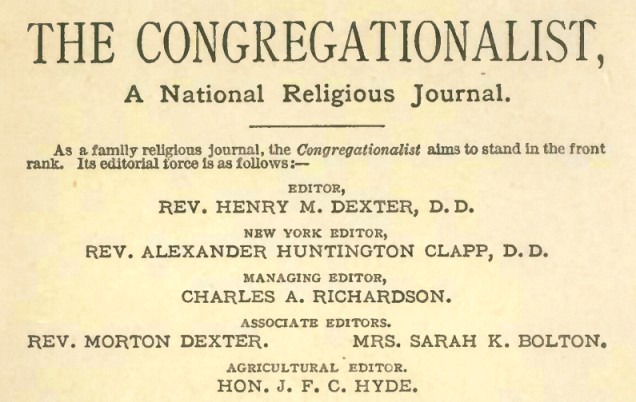In his 1998 article 'The Organizing
of Psychoanalysis in Britain' R.D. Hinshelwood provides some background
on the Clinic at which Dexter trained ...
Two friends involved in the suffragette movement founded the Medico-Psychological Clinic: Jessie Murray (1867-1920) was qualified as a medical doctor and obtained further medical training in Psychology. She then went to Pierre Janet - a pioneer in dissociation and traumatic memory - in Paris and continued her studies in London. Julia Turner, her trusted friend and also trained in analysis, was the secretary and treasurer of the Clinic at the beginning.
Murray was interested in clinical work providing 'an eclectic mix of psychotherapies' close to her University College London academic base. 'Eclectic' seems to have included 'Psychological Analysis (from Pierre Janet and others); Psycho-Analysis (from Freud, Jung and others); Therapeutic Conversation and Persuasion; Re-Education and Suggestion in the hypnoidal and hypnotic states'. Back then, even psychological and 'psychic' research societies sometimes intermingled - the field was that new, undeveloped and unorganized as a profession.
Adjoining houses on Brunswick Square (Dexter refers to 'No 33, No 34' - they are now gone) were used for the clinic and for boarding some patients ('the hostel'). The hostel was used to house some daily therapy military patients ... particularly when financial circumstances and wartime fuel shortages made this necessary to maintain the appropriate frequency of sessions. Compared to the quantity of people with wartime psychological injuries, the availability of supportive psychological care was unfortunately quite limited. The Clinic's own growth to meet the demand was restricted by funding challenges, and wartime labour shortages - which slowed remodeling its facilities, including the soldiers' hostel.
With Jessie Murray's death from cancer in 1920, the Clinic lost its driving force and folded soon after. Some loyal Freudians were quite zealous and dominant - pushing out the 'Jungian rump' of the coalescing psychoanalytic profession in Britain. Over time, many of the former Medico-Psychological Clinic therapists 'saw the light' of Freudian psychoanalysis. While this did not necessarily maintain Murray's original goal of providing a variety of therapies, the post-war Freud-dominated development of the British based profession did include many female practitioners who had first been attracted to Murray's clinic ... As you realize, professions which barred women or made their entering practice unnecessarily difficult were pretty common back then and psychoanalysis in England was a rare exception.
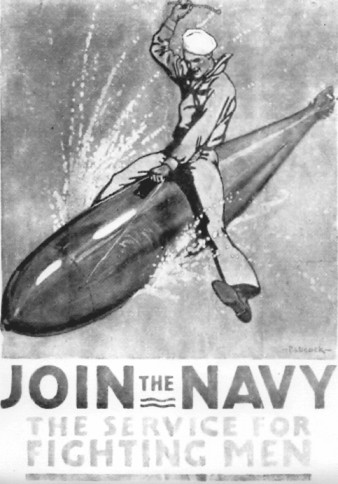
Two friends involved in the suffragette movement founded the Medico-Psychological Clinic: Jessie Murray (1867-1920) was qualified as a medical doctor and obtained further medical training in Psychology. She then went to Pierre Janet - a pioneer in dissociation and traumatic memory - in Paris and continued her studies in London. Julia Turner, her trusted friend and also trained in analysis, was the secretary and treasurer of the Clinic at the beginning.
Murray was interested in clinical work providing 'an eclectic mix of psychotherapies' close to her University College London academic base. 'Eclectic' seems to have included 'Psychological Analysis (from Pierre Janet and others); Psycho-Analysis (from Freud, Jung and others); Therapeutic Conversation and Persuasion; Re-Education and Suggestion in the hypnoidal and hypnotic states'. Back then, even psychological and 'psychic' research societies sometimes intermingled - the field was that new, undeveloped and unorganized as a profession.
Adjoining houses on Brunswick Square (Dexter refers to 'No 33, No 34' - they are now gone) were used for the clinic and for boarding some patients ('the hostel'). The hostel was used to house some daily therapy military patients ... particularly when financial circumstances and wartime fuel shortages made this necessary to maintain the appropriate frequency of sessions. Compared to the quantity of people with wartime psychological injuries, the availability of supportive psychological care was unfortunately quite limited. The Clinic's own growth to meet the demand was restricted by funding challenges, and wartime labour shortages - which slowed remodeling its facilities, including the soldiers' hostel.
With Jessie Murray's death from cancer in 1920, the Clinic lost its driving force and folded soon after. Some loyal Freudians were quite zealous and dominant - pushing out the 'Jungian rump' of the coalescing psychoanalytic profession in Britain. Over time, many of the former Medico-Psychological Clinic therapists 'saw the light' of Freudian psychoanalysis. While this did not necessarily maintain Murray's original goal of providing a variety of therapies, the post-war Freud-dominated development of the British based profession did include many female practitioners who had first been attracted to Murray's clinic ... As you realize, professions which barred women or made their entering practice unnecessarily difficult were pretty common back then and psychoanalysis in England was a rare exception.
I could find no photographs of Dr. Jessie Murray or the Clinic.
Mary Dexter's mother includes no photos from this period.
Sadly, it looked as if there would be NO Freudian or Jungian illustration for this section ...
... until I found this American recruiting poster from the Great War ...
Mary Dexter's mother includes no photos from this period.
Sadly, it looked as if there would be NO Freudian or Jungian illustration for this section ...
... until I found this American recruiting poster from the Great War ...

As the Clinic went through growing pains, Dexter's war service temporarily took another detour.
September 17, 1917 ...to ... May 24, 1918 ... Mary Dexter was again close to The Front helping the wounded.
She was driving an ambulance as part of a private British all-female ambulance service
... and consequently signed to a six-month term as a member of the French Army.
She was driving an ambulance as part of a private British all-female ambulance service
... and consequently signed to a six-month term as a member of the French Army.
Field Ambulance Service, France
While waiting for the
Medico-Psychological Clinic to expand ... having previously returned
from the Depage Hospital in Belgium and recovered from Scarlet Fever
... and wanting to get closer to the Front ... Mary Dexter joined the
Hackett-Lowther Unit for an initial six-month term. The Hackett-Lowther Unit was a private
ambulance and canteen service run by two women and 'the only' female
unit at the Front. The British would not permit women so
close to the front, and they were surprised to drop by the French
facility and see women there.
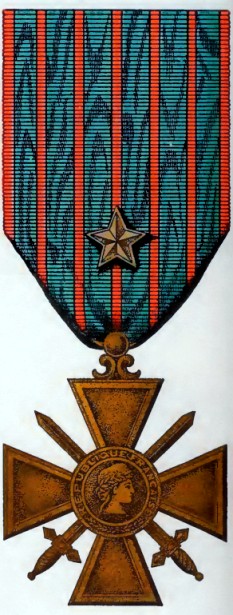
Croix de Guerre
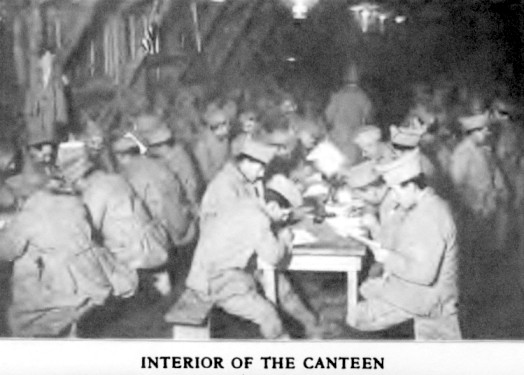
The French tolerated women closer to the Front ... and of course French female civilians often found themselves 'at the Front' as it swayed back and forth. The Hackett-Lowther personnel were officially organized and paid as French soldiers with a French military commander, mechanic, cook and orderly.
Dexter was trained in, and performed functions such as, removing ambulance tires and vulcanizing their inner tubes, soldering, regular ambulance maintenance including daily lubrication work. She was given a General Motors (GMC) ambulance which was governed at 25 mph.
She came to know the GMC's idiosyncrasies ... later a British general's wife (her inexperienced second driver) was crank-starting the GMC and ended up with torn arm ligaments when she didn't release the crank the instant the motor fired - as previously instructed by Dexter.
During cold weather, the ambulance radiators were drained overnight as no anti-freeze was available.
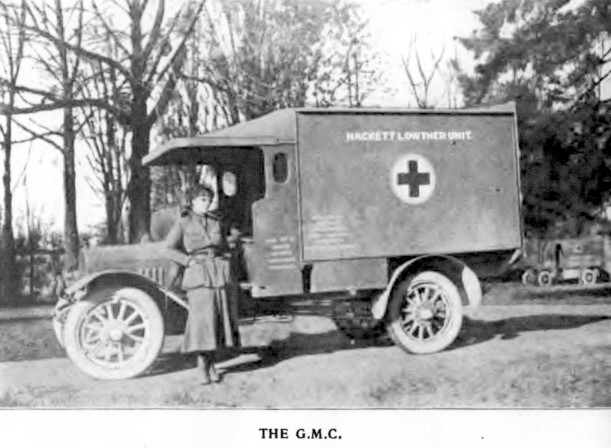
- Barbara 'Toupie' Lowther is variously described as a champion tennis player or fencer with an aristocratic background - she supervised the ambulances.
- Norah Hackett was Irish, had been at the Front since the beginning, and had already been awarded the Croix de Guerre for tending to wounded under shell-fire - she supervised the canteen operations.
- Shortly after Dexter's departure, Lowther and the Unit also received the Croix de Guerre for its service.

Croix de Guerre

The French tolerated women closer to the Front ... and of course French female civilians often found themselves 'at the Front' as it swayed back and forth. The Hackett-Lowther personnel were officially organized and paid as French soldiers with a French military commander, mechanic, cook and orderly.
Dexter was trained in, and performed functions such as, removing ambulance tires and vulcanizing their inner tubes, soldering, regular ambulance maintenance including daily lubrication work. She was given a General Motors (GMC) ambulance which was governed at 25 mph.
She came to know the GMC's idiosyncrasies ... later a British general's wife (her inexperienced second driver) was crank-starting the GMC and ended up with torn arm ligaments when she didn't release the crank the instant the motor fired - as previously instructed by Dexter.
During cold weather, the ambulance radiators were drained overnight as no anti-freeze was available.

The following poem is from "Friends of France - The Field Service of the American Ambulance described by its members" (1916). Written by a man who later acted in Charlie Chan movies ... it captures the essence of Dexter's Field Ambulance experiences perfectly:
Ambulance drivers and other vehicles were prohibited from using vehicle lights at night to avoid attracting enemy artillery fire. French words and expressions were regularly blended into Dexter's letters.
|
Un Blessé à Montauville
Calls the sallow-face téléphoniste.by Emery Pottle " Un blessé à Montauville - urgent ! "
The night is as black as hell's black pit, There's snow on the wind in the East. There's snow on the wind, there's rain on the wind, The cold's like a rat at your bones; You crank your car till your soul caves in, But the engine only moans. The night is as black as hell's black pit; You feel your crawling way Along the shell-gutted, gun-gashed road - How - only God can say. The 120's and 75's Are bellowing on the hill; They're playing at bowls with big trench-mines Down at the Devil's mill. Christ! Do you hear that shrapnel tune Twang through the frightened air? The Boches are shelling on Montauville - They're waiting for you up there! " Un blessé - urgent ? Hold your lantern up While I turn the damned machine ! Easy, just lift him easy now ! Why, the fellow's face is green ! " " Oui, ça ne dure pas longtemps, tu sais. " " Here, cover him up - he's cold! Shove the stretcher - it's stuck! That's it - he's in! " Poor chap, not twenty years old. " Bon-soir, messieurs - à tout à l'heure! " And you feel for the hell-struck road. It's ten miles off to the surgery, With Death and a boy for your load. Praise God for that rocket in the trench, Green on the ghastly sky - That camion was dead ahead ! Let the ravitaillement by ! " Courage, mon brave ! We're almost there ! " God, how the fellow groans - And you'd give your heart to ease the jolt Of the ambulance over the stones. Go on, go on, through the dreadful night - How - only God He knows ! But now he's still ! Aye, it's terribly still On the way a dead man goes. "Wake up, you swine asleep ! Come out ! Un blessé - urgent - damned bad !" A lamp streams in on the blood-stained white And the mud-stained blue of the lad. " Il est mort, m'sieu ! " " So the poor chap's dead ? " Just there, then, on the road You were driving a hearse in the hell-black night, With Death and a boy for your load. O dump him down in that yawning shed, A man at his head and feet; Take off his ticket, his clothes, his kit, And give him his winding-sheet. It's just another poilu that's dead; You've hauled them every day Till your soul has ceased to wonder and weep At war's wild, wanton play. He died in the winter dark, alone, In a stinking ambulance, With God knows what upon his lips - But on his heart was France ! |
